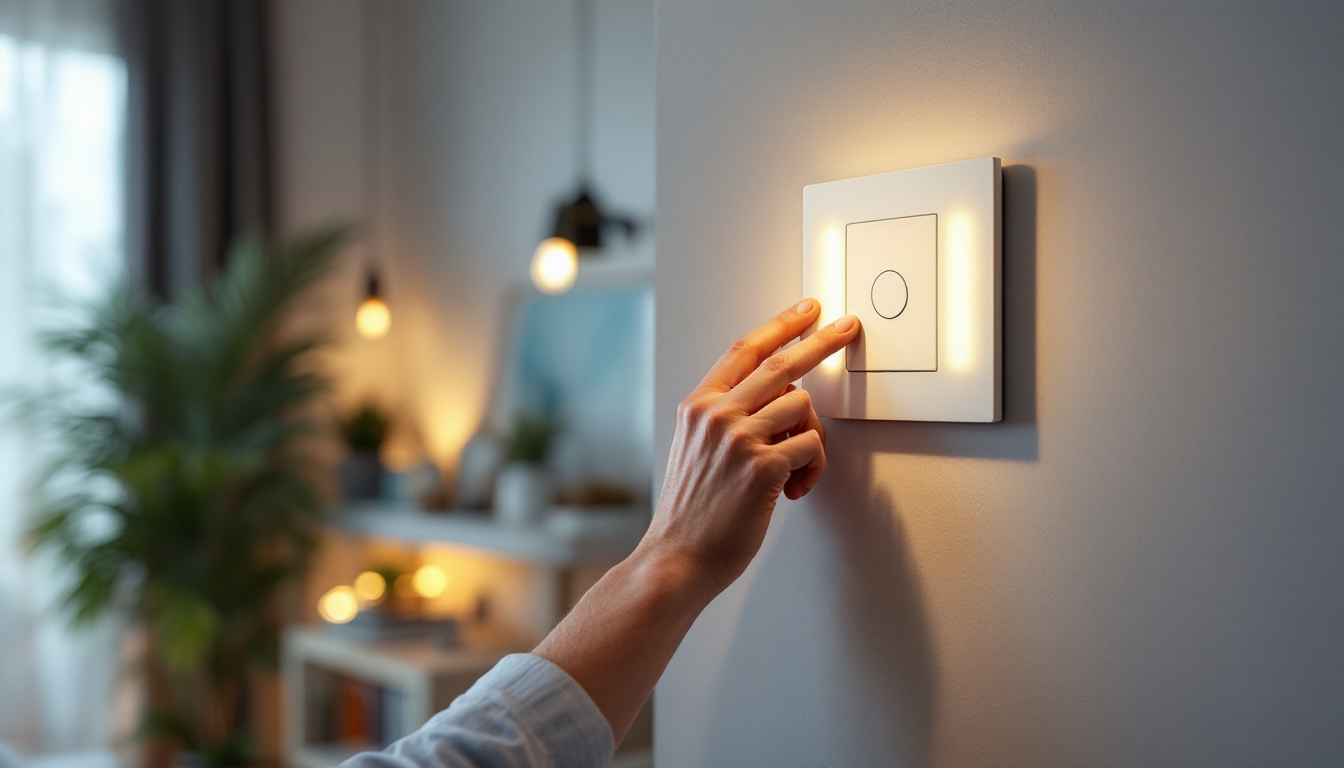
In the ever-evolving landscape of lighting design and installation, contractors must stay ahead of the curve to ensure their projects shine. From understanding the latest technologies to adhering to safety standards, the best practices for lighting contractors are essential for delivering quality results. This article explores the best practices that can elevate a lighting contractor’s work and enhance client satisfaction.
One of the primary responsibilities of a lighting contractor is to understand the specific needs of each client. This involves more than just discussing the aesthetic preferences; it requires a deep dive into the functional requirements of the space. Each project is unique, and a successful lighting design must reflect the individual characteristics and intended use of the environment. Whether it’s a cozy residential setting or a bustling commercial space, understanding these nuances is key to delivering a solution that not only looks good but also enhances the overall experience.
Consultations should be comprehensive, allowing clients to express their vision while contractors ask probing questions to uncover underlying needs. It’s important to discuss the purpose of the lighting: Is it for ambiance, task-oriented, or security? Understanding these aspects can guide the selection of fixtures, placement, and control systems. Additionally, discussing the client’s budget and timeline is essential, as these factors can significantly influence the design choices and the overall project scope. By fostering an open dialogue, contractors can build trust and ensure that the final design aligns closely with the client’s expectations.
Physical assessments of the space are crucial. This includes evaluating the layout, existing electrical systems, and natural light sources. By taking measurements and noting architectural features, contractors can make informed recommendations that align with the client’s vision and the space’s functionality. Furthermore, it’s beneficial to consider the psychological effects of lighting on occupants. For instance, warmer tones can create a sense of comfort and relaxation, while cooler tones can enhance focus and productivity. By integrating these psychological principles into the assessment, contractors can propose lighting solutions that not only meet practical needs but also contribute positively to the well-being of those who inhabit the space.
The lighting industry is rapidly changing, with new technologies emerging regularly. Contractors must be proactive in staying informed about these advancements to provide the best solutions to their clients. This involves not only keeping up with the latest products but also understanding how these innovations can be integrated into existing systems. Regular training sessions, webinars, and industry conferences can serve as valuable resources for contractors looking to enhance their knowledge and skills in this dynamic field.
Smart lighting has gained popularity for its energy efficiency and convenience. Contractors should familiarize themselves with various smart lighting systems, including those that can be controlled via smartphones or integrated into home automation systems. Understanding the benefits and limitations of these technologies can help contractors recommend the best options for their clients. For instance, many smart lighting solutions offer features such as dimming capabilities, color temperature adjustments, and scheduling options, allowing users to tailor their lighting to fit their lifestyle and preferences. Additionally, the integration of smart lighting with voice-activated assistants can further enhance user experience, making it an essential consideration for modern homes and businesses.
With a growing emphasis on sustainability, contractors must be knowledgeable about energy efficiency standards and regulations. This includes understanding the benefits of LED lighting, which not only reduces energy consumption but also has a longer lifespan than traditional bulbs. Providing clients with energy-efficient options can enhance project appeal and contribute to environmental sustainability. Moreover, staying informed about local and national incentives for energy-efficient installations can provide contractors with the opportunity to offer cost-saving solutions to clients. For example, many regions have rebate programs for installing energy-efficient lighting, which can significantly lower upfront costs and encourage clients to make the switch. By being well-versed in these standards and incentives, contractors can position themselves as trusted advisors in the field of sustainable lighting solutions.
A well-thought-out lighting plan is critical to achieving the desired ambiance and functionality of a space. Contractors should employ a systematic approach to design, ensuring that every aspect is considered.
Effective lighting design often involves layering different types of light—ambient, task, and accent. Ambient lighting provides general illumination, task lighting focuses on specific areas for activities, and accent lighting highlights architectural features or artwork. By combining these elements, contractors can create a dynamic and visually appealing environment.
Many contractors now use specialized software to design lighting plans. These tools can simulate how light interacts with various surfaces and materials, allowing for more precise planning. Utilizing such technology can help contractors visualize the end result and make adjustments before installation, saving time and resources.
Compliance with local codes and safety standards is non-negotiable in the lighting industry. Contractors must be diligent in ensuring that their installations meet all regulations to protect both themselves and their clients.
Each region may have different electrical codes and regulations that govern lighting installations. Contractors should familiarize themselves with these codes, ensuring that all work complies with local laws. This not only helps avoid legal issues but also builds trust with clients who expect professionalism and adherence to standards.
Safety should always be a top priority during installation. This includes using proper tools and equipment, following safety protocols, and ensuring that all electrical work is performed by qualified personnel. By prioritizing safety, contractors can minimize risks and create a secure environment for both workers and clients.
Successful project management is essential for delivering projects on time and within budget. Contractors must be adept at coordinating various aspects of the project to ensure smooth execution.
A well-structured timeline helps keep the project on track. Contractors should outline each phase of the installation process, from initial consultations to final inspections. By setting clear deadlines and milestones, contractors can manage expectations and ensure that all parties are aligned throughout the project.
Regular communication with clients and other stakeholders is vital for project success. Contractors should provide updates on progress, address any concerns, and be open to feedback. This transparency fosters trust and collaboration, ultimately leading to a more successful project outcome.
In the lighting industry, strong relationships with clients, suppliers, and subcontractors can significantly impact a contractor’s success. Building and maintaining these relationships requires effort and dedication.
Networking is a powerful tool for contractors. Attending industry events, joining professional organizations, and engaging with peers can lead to valuable connections. These relationships can provide insights into best practices, emerging trends, and potential partnerships that can enhance a contractor’s offerings.
Exceptional customer service can set a contractor apart from the competition. This includes being responsive, addressing concerns promptly, and going the extra mile to ensure client satisfaction. Happy clients are more likely to refer contractors to others and return for future projects.
The lighting industry is dynamic, and ongoing education is crucial for contractors to remain competitive. Investing in training and professional development can yield significant benefits.
Workshops and seminars offer opportunities for contractors to learn about new products, technologies, and techniques. These events can also provide insights into industry trends and best practices. By participating in such educational opportunities, contractors can enhance their skills and knowledge, ultimately benefiting their clients.
Obtaining relevant certifications and licenses demonstrates a contractor’s commitment to professionalism and expertise. Many organizations offer certifications in lighting design, energy efficiency, and safety standards. These credentials can enhance a contractor’s credibility and attract more clients.
Effective marketing is essential for lighting contractors looking to grow their business. Utilizing a variety of strategies can help reach potential clients and showcase expertise.
In today’s digital age, having a robust online presence is crucial. This includes a professional website that showcases past projects, client testimonials, and services offered. Social media platforms can also be leveraged to share insights, engage with clients, and promote special offers.
Visual content is particularly effective in the lighting industry. High-quality images and videos of completed projects can captivate potential clients and illustrate a contractor’s capabilities. Before-and-after shots can be particularly compelling, demonstrating the transformative power of effective lighting design.
Gathering feedback from clients and stakeholders is essential for continuous improvement. Understanding what worked well and what could be improved can help contractors refine their processes and enhance future projects.
After completing a project, contractors should conduct evaluations to assess the overall success. This includes gathering feedback from clients regarding their satisfaction with the work, communication, and overall experience. Such evaluations can provide valuable insights into areas for improvement.
Once feedback is collected, it’s important for contractors to analyze and implement necessary changes. Whether it’s adjusting communication strategies or refining installation techniques, taking action based on feedback demonstrates a commitment to excellence and client satisfaction.
Lighting contractors play a crucial role in shaping the environments in which people live and work. By adhering to best practices, from understanding client needs to ensuring compliance and safety, contractors can deliver exceptional results that exceed client expectations. Embracing technology, fostering relationships, and committing to continuous improvement are key elements that can elevate a contractor’s business in the competitive lighting industry.
Ultimately, success in this field hinges on a contractor’s ability to adapt, innovate, and prioritize the needs of their clients. By implementing these best practices, lighting contractors can illuminate their path to success and create spaces that truly shine.
Ready to bring your lighting projects to the next level? At LumenWholesale, we provide lighting contractors like you with the highest quality, spec-grade lighting products at prices that can’t be beaten. Say goodbye to local distributor markups and hello to our extensive selection that meets rigorous industry standards. With free shipping on bulk orders, you can trust that you’re getting premium lighting at the best value — no hidden fees, no compromises. Elevate your lighting solutions today and experience the unbeatable value of wholesale lighting with LumenWholesale.

Discover why lighting contractors should prioritize affordable LED strip lights in their projects.

Discover how LED flood lights for exterior use can significantly cut costs for lighting contractors.

Discover how outdoor lights with motion sensor LED technology are revolutionizing lighting design and installation.

Discover how LED dimmers can be a game-changer for lighting contractors looking to win more bids.